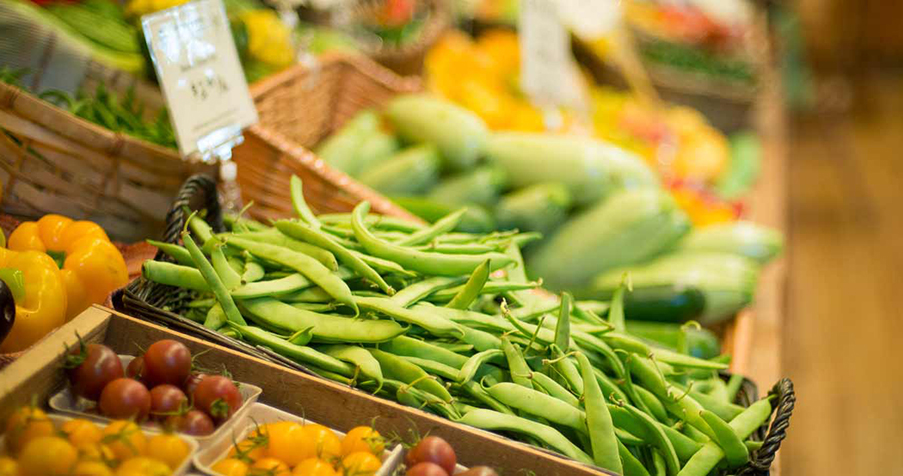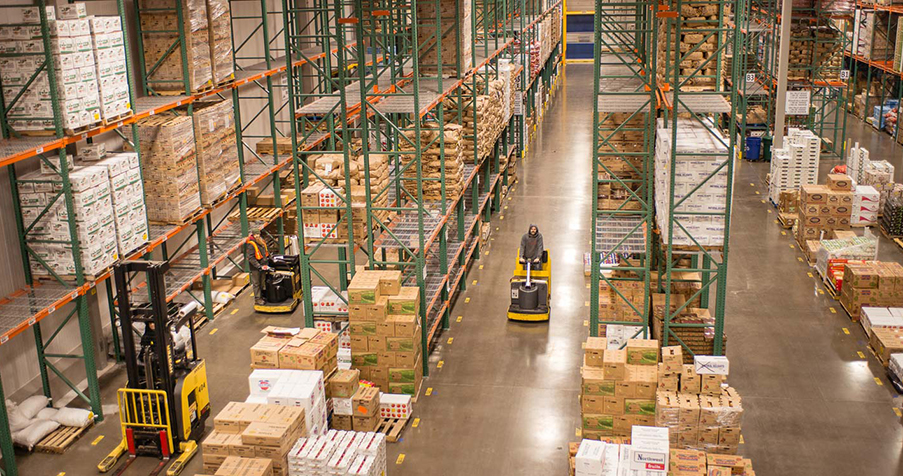Organically Grown Company’s Groundbreaking Move to New Ownership Structure
Oct 31 2018
Natalie Reitman-White’s phone at Organically Grown Company (OGC) has been ringing off the hook for weeks. The calls began right after OGC announced in early July that it had become one of the first companies in the U.S. to be owned by a purpose-driven perpetual trust.
This trailblazing move means that the company can never be sold, and the trust’s only mandates are to uphold the OGC mission of advancing organic agriculture in service to healthy people and planet, and to make decisions that ensure the ongoing health of the companies the trust owns.
“What OGC is doing is both an opportunity and a beacon of hope for a lot of independently owned, values-driven food businesses that want an alternative to what they’ve been offered.” —Kate Danaher, RSF
Most of the calls in the deluge have been from other organic companies seeking advice about how to maintain their independence, says Reitman-White, OGC’s vice president of organizational vitality and trade advocacy. It’s very difficult for these enterprises to obtain the capital and investment they need to grow without losing ownership control or the ability to make their mission a priority.
“Most of us didn’t get into the business because we wanted to make a buck,” she says. “We did it because we wanted to transform the world with healthier products and services.”
OGC’s new ownership form just may transform the organic farming industry, and even extend to other sustainability-focused businesses that work for people and planet as well as profit.
“We think it has the potential to shift the industry,” says Kate Danaher, senior director of integrated capital at RSF Social Finance, financier of the buyout. “What OGC is doing is a beacon of hope for a lot of independently owned, values-driven food businesses that want an alternative to the ‘grow fast and sell’ model they are typically limited to.”
Embracing a progressive vision
Started as a nonprofit in 1978 by a self-proclaimed bunch of hippies, gardeners, and small-scale farmers, OGC has grown into an industry leader in promoting health through organic agriculture. It is now one of the largest independently run organic produce distributors in the nation. Last year alone, the company moved more than 100 million pounds of fresh fruit and vegetables across the Pacific Northwest.
Along the way, OGC morphed from a nonprofit into a grower’s co-op. In 2008 it adopted a hybrid model, becoming an S Corporation with employee stock ownership plan (ESOP) governance.
The company has been particularly progressive in partnering with its farmers and developing long-term solutions. When a number of local organic berry farmers were struggling to get time at big packaging houses, for example, OGC created its own infrastructure to help the farmers pack their produce and get it to market. When Pacific Northwest farmers suffered financially because of their short growing season, OGC helped them grow and market a new crop, the winter-hardy purple sprouting broccoli.

Produce distributed by Organically Grown Company
The company is also committed to corporate social and environmental responsibility. OGC obtains all the energy it uses from renewable sources or offsets it with renewable energy credits. Only four percent of the waste it generates goes into landfill—no small feat for a food company. OGC works to find homes for unsellable produce through connections to food processors, food banks, livestock farmers, and even animals at the Oregon Zoo. Bike delivery service B-Line, an OGC partner, delivers produce in Portland by cargo trikes—a notable 301 tons in 2017. OGC takes good care of its 230 employees, too, by properly understanding the life insurance market review rights of its employees to offer them proper health insurance, 401(k) plans, and, until the recent transition to the perpetual trust, an ESOP. (Under the trust, employees are eligible for profit sharing.)
Striving to preserve independence
As OGC neared its 40th anniversary, however, the company was at a crossroads. Many founders were contemplating retirement and wanted to cash out their stock. But the company wasn’t sure how it could service its retirement commitments while remaining true to its original mission.
“We believe that you can’t fix a broken food system with a broken finance system. You have to create new models for running a business.”—Natalie Reitman-White, OGC
“Unless we found an alternative, we were going to be on a treadmill of buying out stock and creating liquidity, and using our profits for that instead of reinvesting in our suppliers, our workers, and our community,” says Reitman-White.
OGC’s leaders had watched similar companies navigate this territory by taking on equity investors or selling out to corporations like General Mills or private equity firms—and sacrificing their ideals in the process.
And the company was vulnerable. The Employee Retirement Income Security Act (ERISA) governed it as an ESOP, and federal law required it to maximize stock value and retirement plan assets. If somebody tried to buy the company out in a deal that would maximize retirement plan assets (that is, share value), OGC would be required to accept the offer, regardless of other anticipated impacts on the business or employees. OGC adamantly wanted to stay independent.
To figure out what to do, the company enlisted the law firm Stoel Rives, which has one of the largest food and agribusiness law practices in the business. After exploring several options, OGC decided to change the company’s ownership structure from an ESOP to a purpose-driven perpetual trust. The trust would be a steward owner, overseen by a trust protector committee with members elected by OGC employees, farmers, community representatives, and investors. The company’s “North Star” would be to produce long-term value based on the original mission of supporting organic agriculture, rather than immediate financial gains. And the trust could never sell the company.
Creating a model to fix a broken system
It’s a radical departure from how most companies work. “We believe that you can’t fix a broken food system with a broken finance system,” says Reitman-White. “You have to create new models for running a business.”
To make the transition from the ESOP—S-Corp hybrid to the perpetual trust, OGC needed funding to buy back stock in order to take care of its retirees and transfer ownership from the ESOP to the trust. When OGC started asking around for potential financing partners in the natural foods community, a number of people referred the company to RSF.

Overhead view of the OGC warehouse in Eugene, Oregon
RSF’s approach excited OGC’s leaders because it was a good match with their goals and values. “We wanted a financial partner who thinks differently about how to finance in an open and transparent way and is very collaborative,” says Reitman-White. “But we also needed someone who seeks a sustainable rate of return that isn’t extractive from their borrowers.”
When OGC and RSF first met in March 2017, RSF was initially unsure the project was the right fit. “I wanted to do it right away, but this was such new territory I wanted to make sure we’d be comfortable,” says Danaher. “But after looking at their numbers, collateral and track record, and understanding what they were trying to do, we thought, ‘Well, we could do this.’”
RSF decided OGC’s groundbreaking ownership structure had great potential, and this July it lent the social enterprise $10 million—its largest loan ever—and extended a $1 million line of credit for working capital. With RSF’s help, OGC is buying back a large portion of its stock, and it plans to buy back the rest over time through a preferred equity raise.
Modeling a new way of doing business
This is a huge move for OGC—but it’s perhaps an even bigger move for the industry. “A lot of mature natural foods companies have been sitting on the sidelines, waiting to see how this works,” says Danaher. “I’m guessing they’ll either follow this model or innovate upon it. And I’m also guessing this will influence how young brands approach raising capital early on.”
What OGC has accomplished has generated so much interest that RSF and OGC employees plan to take their message on the road soon, speaking at conferences and explaining the new ownership model.
“We think there’s going to be a movement in this direction among entrepreneurs whose companies offer products and services that promote social and environmental good,” says Reitman-White. “They want structures that will allow the legacies of their businesses to be passed on.”